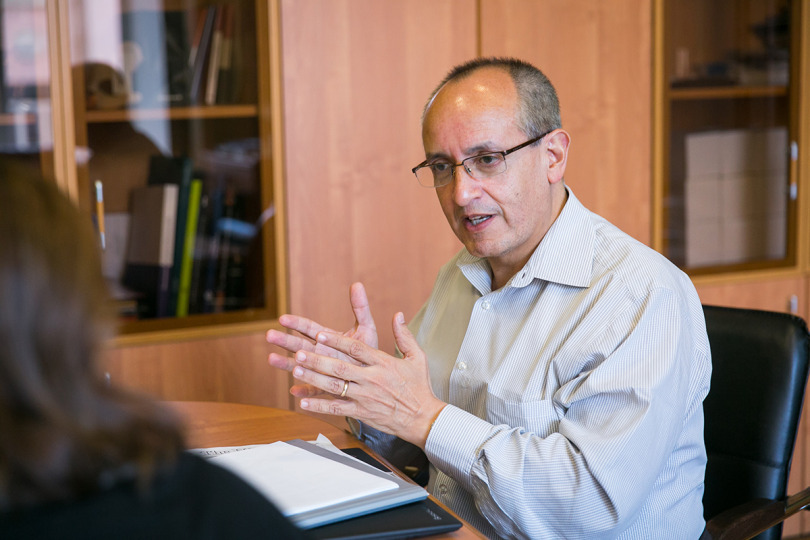Vasily Klucharev: ‘Our Brain Identifies Losing Money and Standing out from the Crowd as Catastrophes’
There are numerous ways of impacting people’s decisions, you can convince, intimidate, hypnotise, or use particular tools on certain parts of the brain. Why do scientists do this and what do these experiments show? Vasily Klucharev, Head of HSE’s School of Psychology answers questions posed by Olga Orlova, who hosts the Hamburg Score programme on Russia’s Public Television Channel.
31%
of professional and vocational schools in Russia are currently not enrolling students for professional education programmes due to a lack of demand.
Summer School on Russian-Chinese Business: Cultural and Legal Aspects
Last week, the Summer School on Russian-Chinese Business: Cultural and Legal Aspects came to an end. The School saw the participation of students from HSE Nizhny Novgorod and from the Southwest University of Political Science and Law (SWUPL) in Chongqing, China. We met with all of the School’s participants to see what they had to say.
72%
of managers at large and medium-sized Russian industrial companies report that the financial and economic situation of their enterprises was ‘satisfactory’.

University Is a Positive Social Laboratory of Change
Global education gives students a new perspective on the world, and teaches them to value differences of opinion, external expert with Project 5-100 Francisco Marmolejo believes. In interview with HSE News, he talked about the different criteria international students use to select which university to study at, why universities should not be entirely focused on ratings, and whether education can change the environment in global politics.
Professional Development Mostly Limited to Intellectuals
In Russia, access to professional development is determined by one's occupation, as well as job position, company size, and characteristics of the local labour market. Skilled personnel in non-physical jobs and public sector employees are more likely to pursue professional development, while low-skilled employees in private firms are effectively excluded from any such opportunity, according to Vasiliy Anikin, Assistant Professor of the HSE Department of Applied Economics.
16.2%
of students who attend schools in the inner Moscow suburbs are children whose native language is not Russian.

HSE International Students Explore Russia and beyond: Antti Viktor Rauhala in Kyrgyzstan
Antti Viktor Rauhala is from Finland. He came to HSE this January as an exchange student. As a politics student who has been studying Russian politics in London at UCL, he has found it refreshing to get a 'Russian perspective' on the current political situation. With his friend Christopher he set on a journey through Russia and Kyrgyzstan.
New Horizons
The Art and Design School under the HSE Faculty of Communications, Media and Design has joined Cumulus, an international association of universities and schools of arts, design and media.

